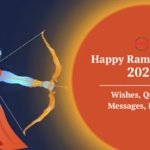Prime Minister Narendra Modi criticized the Congress on Monday, accusing them of embracing a “cancel culture.” This term refers to the opposition party’s consistent rejection of various government initiatives, such as Make in India, Aatmanirbhar Bharat, and Vocal for Local.
PM Modi expressed concern about the Congress harboring so much negativity that they are even attempting to undermine the country’s achievements. This statement was made in the Lok Sabha, highlighting the ongoing clash between the ruling party and the opposition.
The concept of ‘cancel’ used to be straightforward, but over the past decade, it has taken on a new meaning, especially in the realm of online communication. So, what exactly is ‘cancel culture,’ and where has it surfaced in India, targeting Indians and their accomplishments?
What is Cancel Culture?
Cancel culture, as per the Oxford Dictionary, refers to the act of excluding someone from social or professional circles due to disagreement with their words or actions, both online and offline.
Prime Minister Modi accused the Congress of attempting to oppose every government initiative, regardless of its potential benefits.
In essence, cancel culture isolates individuals or entities believed to have behaved or spoken in socially unacceptable ways on social media.
This exclusion involves public humiliation and avoidance, resulting in harm to reputation, mental distress, and occasionally more severe consequences.
Although more evident in the internet era, cancel culture has roots that predate the digital age.
Beatles Faced ‘Cancel Culture’
In a 2020 column for The Washington Post, British-American broadcaster and author Mehdi Hasan pointed to then-US President Donald Trump as a notable example of ‘cancel culture’. Hasan emphasized that Trump, a former reality TV star, has a history of attempting to silence his critics.
Hasan cited instances where Trump sought to boycott brands like Macy’s, Apple, and Harley-Davidson simply because they displeased him.
While cancel culture is often associated with the rise of social media, Hasan argued that its roots go back decades. He highlighted conservative attempts to ‘cancel’ targets long before the internet era.
As an example, Hasan mentioned a 1966 incident when right-wing Christians tried to cancel John Lennon for stating that the Beatles were “more popular” than Jesus. This led to death threats against the band and a radio station encouraging teens to burn their Beatles records in Alaska.
Cancel Culture in India
Karan Kataria, a student from Haryana, faced removal from the position of general secretary at the London School of Economics Students’ Union (LSESU), alleging that cancel culture played a role in his ousting. He claimed that a smear campaign targeted him due to his Indian and Hindu identity, emphasizing that he wasn’t given a fair chance to present his case.
Haryana Chief Minister Manohar Lal Khattar wrote to the LSE, expressing concern about Kataria’s alleged discrimination based on race and beliefs. The issue of ‘cancel culture’ isn’t limited to Indians abroad; it has affected celebrities and movies in India as well.
For instance, Rhea Chakraborty faced a social media smear campaign after her boyfriend, actor Sushant Singh Rajput, passed away. Similarly, Vivek Agnihotri’s film ‘The Kashmir Files’ encountered ‘cancel culture’ within the film industry in 2022.
Aamir Khan also addressed the trend of boycotting Bollywood and his film ‘Laal Singh Chaddha’ in 2022, urging viewers not to boycott but to watch his film. Cancel culture, witnessed in cases like Karan Kataria and Rhea Chakraborty, can have both emotional and financial consequences, impacting movies as well.
As social media amplifies voices, the debate around the effectiveness and ethical implications of cancel culture is likely to persist, both in India and globally.
Cancel Culture FAQs
Q.1. What is cancel culture in India?
Ans. Cancel culture in India involves excluding individuals or entities from social or professional circles due to disagreements with their actions or words, impacting reputation and well-being.
Q.2. Why did Prime Minister Modi criticize the Congress?
Ans. PM Modi accused the Congress of embracing a “cancel culture,” opposing government initiatives like Make in India, Aatmanirbhar Bharat, and Vocal for Local.
Q.3. How has cancel culture affected Indians abroad?
Ans. Karan Kataria, a student at LSE, faced removal, alleging discrimination based on his Indian and Hindu identity, illustrating the impact of cancel culture on individuals abroad.
Q.4. Are celebrities in India affected by cancel culture?
Ans. Yes, celebrities like Rhea Chakraborty, Vivek Agnihotri, and Aamir Khan have faced cancel culture, impacting their emotional well-being and the success of their projects.
Q.5. What are the implications of cancel culture in Bollywood?
Ans. Cancel culture in Bollywood, as seen in cases like ‘The Kashmir Files’ and ‘Laal Singh Chaddha,’ can have both emotional and financial consequences, affecting the industry and its stakeholders.







